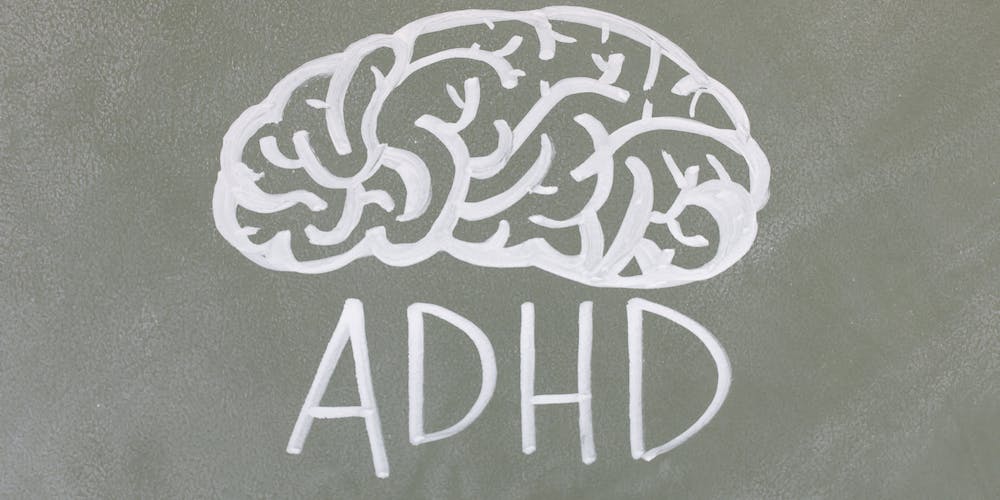Is ADHD Considered a Disability? Can You Qualify for Disability Benefits?
Attention Deficit Hyperactivity Disorder (ADHD) is a neurodevelopmental condition that affects millions of individuals across the United States. For those grappling with the challenges posed by ADHD, understanding whether it qualifies as a disability under the Social Security Disability Insurance (SSDI) program is crucial.
This blog post explains the general nature of ADHD itself and the eligibility of those suffering with ADHD for Social Security Disability benefits.
The Clauson Law Firm has been concentrating its legal practice on helping people with disabilities win the disability benefits they deserve and are entitled to. Our chief founder and lead attorney is a recognized industry leader in disability law and has more experience helping disabled individuals obtain their government benefits than most other practitioners in the field. If you need help or have questions about your entitlement to Social Security Disability Insurance (SSDI or SSD) benefits or Supplemental Security Income (SSI) benefits, contact The Clauson Law Firm today. We’re here to help.
What is ADHD?
ADHD is characterized by a persistent pattern of inattention, hyperactivity, and impulsivity that can impact an individual’s daily functioning across various life activities and experiences. This condition often emerges in childhood and may persist into adulthood, posing unique challenges for those affected.

The Social Security Disability Insurance program (SSDI) is a federal program administered by the Social Security Administration (SSA) that provides financial assistance to individuals who are unable to work due to a severe disability. To qualify for SSDI benefits, applicants must meet specific eligibility criteria. These criteria are designed to ensure that only those individuals facing substantial barriers to employment receive assistance.
SSDI Eligibility Criteria: The Basics
The SSDI eligibility criteria requires that claimants meet several fundamental requirements:
- Work Credits: Applicants must have earned a sufficient number of work credits through their employment history. The number of required credits varies depending on the individual’s age at the time of disability onset. Generally, disabled workers and former workers need to have accumulated 40 work credits (no more than 4 per year for 10 years) and have earned half of those credits within the 10 years prior to the filing of their SSDI claim. Younger workers who become disabled before they can accumulate the typical number of minimum work credits are subject to a different eligibility formula that focuses on the number of years they have worked and accumulated credits since their 21st birthday.
- Severe Impairment: The Social Security Administration’s definition of a “disability” is a physical or mental impairment that lasts or is expected to last 12 months (or result in death) and which prevents the claimant from performing “substantial gainful activities,” or SGAs. Substantial Gainful Activities is defined as the ability to earn more than an annually set amount each month. In 2023, the SGA is set at no more than $1,470 per month for nonblind claimants and $2,460 for claimants who are blind. The 2024 SGA limits are $1,550 for nonblind and $2,590 for blind claimants.
Recognition of ADHD as a Disability Under SSDI
The recognition of ADHD as a disability under SSDI is a nuanced issue. While the condition may not always meet the stringent criteria for disability, certain individuals with ADHD experience symptoms and complications severe enough to hinder their ability to work. The challenge lies in demonstrating the severity of impairment to the SSA’s satisfaction.
Proving Severe Impairment for SSDI Benefits in ADHD Cases
To establish eligibility for SSDI benefits when dealing with ADHD, individuals must find their way through a process that involves several critical steps and considerations:
- Comprehensive Medical Documentation – Thorough and well-documented medical records are the foundation of any successful SSDI claim. Individuals with ADHD should ensure that their medical records include:
- A formal diagnosis of ADHD from a qualified healthcare provider
- A detailed treatment history, including medications and therapeutic interventions.
- A history of symptoms and their impact on daily life and functioning.
- Functional Assessment – One of the most critical elements in proving the severity of ADHD-related impairment is a functional assessment. Conducted by a qualified healthcare professional, this assessment evaluates the individual’s limitations and their impact on the ability to work. The key components of a functional assessment include the following:
- Examination of specific ADHD-related symptoms, such as inattention, impulsivity, and hyperactivity.
- Assessment of cognitive functioning, including attention and executive functioning.
- Analysis of the individual’s ability to complete tasks, concentrate, and sustain attention.
- Psychological Testing – In some cases, psychological testing may be necessary to assess the severity of ADHD-related impairments accurately. These tests can provide objective data regarding cognitive functioning and attention span.
- Documentation of Functional Limitations – Applicants should provide detailed documentation of how their ADHD-related symptoms limit their ability to perform tasks essential to employment. This may include difficulties with the following daily life activities and tasks:
- Maintaining focus and concentration on work tasks.
- Organizing and prioritizing tasks.
- Following instructions and completing assignments.
- Interacting with supervisors, coworkers, and customers.
- Managing time effectively.
- Work History and Accommodations – A comprehensive work history is essential to an SSDI claim. Applicants should provide information on past employment, including:
- Job descriptions and duties.
- Any accommodations or modifications requested or received due to ADHD.
- Performance reviews or evaluations that reflect ADHD-related difficulties.
- Legal Representation – Engaging an experienced disability attorney is the most powerful way to increase the likelihood of a successful SSDI claim. Skilled and experienced Social Security disability attorneys can work in the complex Social Security Disability application process every day of their professional lives and ensure that all necessary documentation is submitted in a complete and efficient manner. Then, throughout the SSD consideration process, these specialized attorneys represent the applicant in all hearings and in any appeals if necessary.
Demonstrating the Severity of ADHD
Proving the severity of ADHD-related impairment for SSDI benefits can be challenging. ADHD symptoms, particularly inattentiveness and impulsivity, can be subjective and challenging to quantify. This subjectivity can complicate the process of proving disability to the SSA.
How does one “demonstrate” inattentiveness and impulsivity to an Administrative Law Judge (ALJ) during an SSD benefit claim’s hearing process?
Another difficult hurdle for Social Security Disability claims based on ADHD is the fact that many ADHD sufferers respond well to medication and therapy. While treatment can improve symptoms, it may also be viewed by the SSA as evidence that the condition is manageable and does not qualify as a disability.
Plus, to qualify for SSDI, applicants must demonstrate functional limitations that prevent them from engaging in substantial gainful activity. For some individuals with ADHD, these limitations may be less apparent or more difficult to document than for other disabilities.
How Can an Experienced Disability Law Attorney Help to Win an ADHD Disability Claim?
The practice of Disability Law is not limited to simply filling out forms and filing them. The most qualified disability law attorneys, like those at The Clauson Law Firm, have spent decades studying disability law and regulations and honing their advocacy skills in this very unique field of law.
Gathering and Organizing the Evidence Supporting the ADHD Disability Claim
One of the most burdensome steps in the presentation of a quality SSD claim, no matter the impairment, is the thorough and exhaustive collection of all pertinent medical records, lab reports, therapy notes, testing reports, and doctors’ notes.
Each and every one of these important documents helps to fill in at least one significant gap in the claimant’s comprehensive medical record. ADHD sufferers who qualify for SSD or SSI benefits are ones who have struggled with the condition and sought help from healthcare professionals for years. These healthcare providers may have helped somewhat, but inconsistent or impermanent improvements still leave the claimant open to failures and frustrations in their daily living activities, including their limitations at work.
Obviously, a person living with severe ADHD is unlikely to successfully concentrate on acquiring every relevant document from all their healthcare providers over the past several years. To do so would almost contradict their diagnosis. Instead, professional disability lawyers and their highly trained staffs complete this important task on the claimant’s behalf, then organize the material and assemble an SSDI benefits claim of such quality and persuasiveness that the ADHD patient enjoys their best chance of success before the Social Security Administration.
If you or someone in your family is suffering from ADHD or any other complex or nuanced physical or mental impairment, contact The Clauson Law Office today. We represent SSDI and SSI claimants throughout the United States, no matter which state you live in. Our Social Security Disability practice is nationwide and we have won more disability claimants for more SSDI and SSI claimants than we can count.
Don’t wait and don’t be afraid to reach out to us. We truly are here to help you win the disability benefits you deserve and are entitled to.


